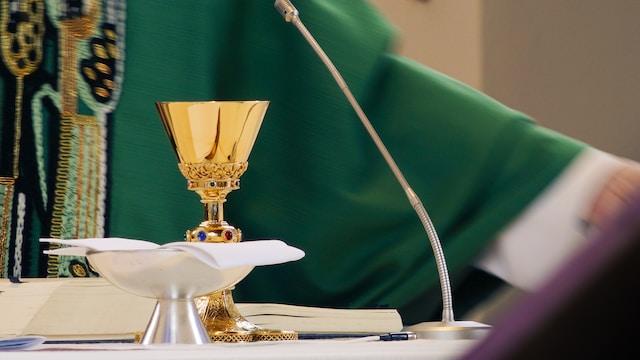Father Hans Zollner, a German priest and an expert in the fight against sexual abuse in the Church, said in an interview with Infovaticana that celibacy is not a direct cause of this evil.
Newsroom (30/09/2023 12:09, Gaudium Press) The psychologist, who also holds a doctorate in theology, said that “celibacy is not a direct cause of abuse; what can become a risk factor is a ministry poorly lived and not fully accepted.”
“All scientific reports, including those commissioned by non-Church institutions, conclude that celibacy in itself does not lead to abuse. Therefore, it is wrong to say that with the abolition of celibacy there would no longer be cases of abuse in the Catholic Church,” he emphasized.
The former member of the Pontifical Commission for the Protection of Minors, from which he resigned in March, said that “sexual abuse arises above all from an abuse of power that someone takes advantage of.”
“These reports conclude, and this is what I also maintain, that without a solid human formation or a healthy, integral life and working in community, a celibate life can lead to abuse,” he said. “If the priest does not have human, spiritual, and work equilibrium, inner emptiness and desires that are not well integrated can lead him to commit abuse.”
The priest and director of the Institute of Anthropology at the Gregorian University in Rome noted that “scientific studies indicate that it cannot be considered that there is a monocausal relationship that explains the relationship between homosexuality and abuse.”
“The human person is complex and many factors influence one’s behavior. Additionally, many male child molesters do not identify exclusively as homosexual,” he explained.
“The 2011 John Jay Report in the United States refers to them as ‘occasional abusers,’ that is, they abused those closest to them, who at that time were mostly boys. But the figures from recent years show that since there have been more altar girls and co-ed schools there has been more abuse of girls,” he noted.
In May 2011, the United States Conference of Catholic Bishops presented the study “The Causes and Context of Sexual Abuse of Minors by Catholic Priests in the United States, 1950-2010,” conducted by a team of researchers from the John Jay College of Criminal Justice from the City University of New York.
The report concluded that “there was no single cause or predictor of sexual abuse by Catholic clergy. The report added that situational factors and opportunity to abuse played a significant role in the onset and continuation of abusive acts.”
Abuser profile and seminary formation
Regarding the profile of the abuser, the Jesuit said that there is not only one “and there can be many different reasons that lead a person to commit abuse. We can say that there are behavioral and psychological patterns that are repeated in the profile of abusers within the Church. I would highlight four: the narcissistic abuser, the obsessive, the insecure, and the true pedophile in the sense of the psychiatric definition.”
Regarding seminary formation, the German priest noted that this “is key. It is necessary that at this very important stage of their lives they not only acquire knowledge but also skills. They must learn everything necessary to lead a healthy life at all levels and develop their future priestly ministry well.”
Victims and abusers
Regarding the impact of abuse on victims, Zollner commented that “it can have very serious consequences on a person’s faith. Abuse can also be of a spiritual nature and can cause the victim to question his relationship with God and the Church.”
“I believe that victims and survivors should surround themselves with those who listen to them and understand them, people who seek justice and who can put them in contact with professionals from different fields who can help them,” he recommended.
After emphasizing that financial compensation is important for the victims, the Jesuit said that this “is not the main desire. What many, or the vast majority of victims of sexual abuse and other types of abuse want, is for Church representatives to listen to them. They want to talk and express what happened to them, their rage and anxiety.”
As for abusers, the expert said that they should be judged in civil and ecclesiastical jurisdictions and, “as Pope Francis has said in some instances, they should not return to their ministry or have contact with minors.”
“In any case, they must be helped to find a meaningful way of life that does not endanger others. They must be supervised, including psychological evaluation, therapy, and spiritual accompaniment,” he continued.
Zollner also emphasized that “the Church must be willing to do what is necessary to ensure that perpetrators of abuse and those that cover up for them are punished fairly and in a way that prevents further abuse in the future.”
After commenting that the institute he directs offers various programs for training in these issues, the German priest said that some emblematic cases involving Jesuits such as those in Barcelona and Bolivia or the former Jesuit Marko Rupnik “have had an impact on the Society of Jesus and on the credibility of the order, as happens in any case of abuse. I noticed it already in 2010 when the first news broke in Germany at a Jesuit school in Berlin which led to a great flood of news about abuse.”
- Raju Hasmukh with files from CNA



































